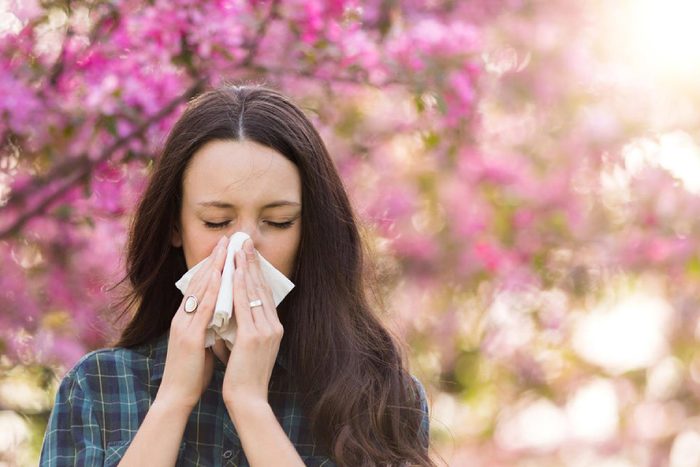
You have allergies
Let’s get to the obvious reason you can’t stop sneezing out of the way first. “Sneezing is caused when a foreign particle or irritant hits the nasal tissue,” explains Miguel Wolbert, MD, of West Texas Allergy. “You sneeze in order to forcibly remove the particle from the nasal cavity,” he says. In an allergy, your body has an overreaction to something normally benign, like pollen from plants or animal dander. If sneezing comes with other classic allergy symptoms like a runny nose, congestion, and itchy eyes—especially if you go outside or are around the family cat—then it’s most likely allergies. If not, then it’s something else. As far as what that could be, read on. (Learn about never-thought-of-them ways to treat your allergies this spring.)
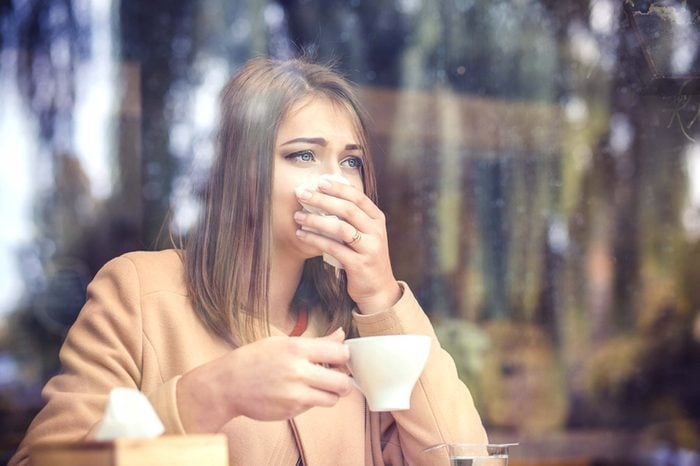
It’s a sinus infection
Both allergies and a cold can turn into sinusitis, an infection that causes sinuses to swell. Symptoms include postnasal drip, facial tenderness, coughing, fever, and fatigue, according to the American College of Allergy, Asthma & Immunology. Luckily, most sinus infections are usually viral and you’ll feel better in about a week, says Dr. Wolbert. But if sinus infections keep coming back or are associated with allergy symptoms like a runny nose or chronic sneezing, he says there is a good chance that allergies are the main cause of the sinus infections. Treating the underlying cause—in this case, allergies—will help solve your problem. Find out just how bad it is if you hold in that sneeze.

You’re on a new med
One bizarre side effect of some medications (like beta-blockers or even NSAIDs): Sneezing. “Certain medications can lead to strange nerve responses, making you sneeze,” says Dr. Wolbert. Luckily, this is rare. If you notice sudden your suddenly sneezy on new meds, it can certainly be annoying, but it’s not reason enough to stop them on a whim. Talk to your doctor first.
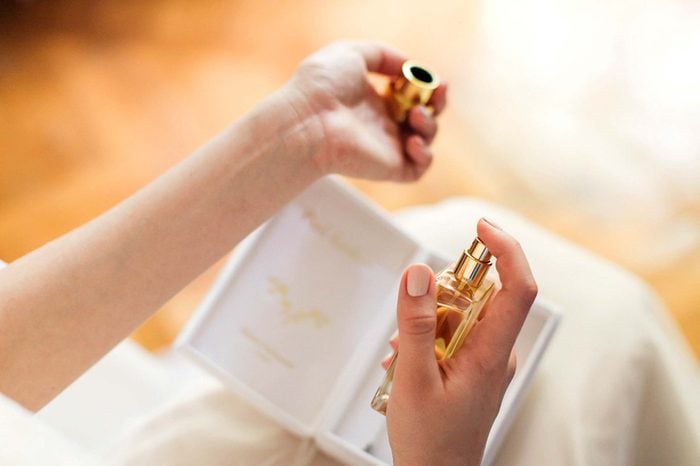
It’s your coworker’s super stinky perfume
Thanks to the lady in the elevator who decided to douse herself in fragrance, you can’t stop sneezing. It’s a type of nonallergic rhinitis, which means your nasal passages become inflamed in response to an irritant, like perfume, explains Dr. Wolbert. (It’s not caused by allergies.) Your best bet is to do your best to avoid strong scents (knowing that it can be hard, if not impossible to do so sometimes). You may also try using a nasal rinse once or twice daily.
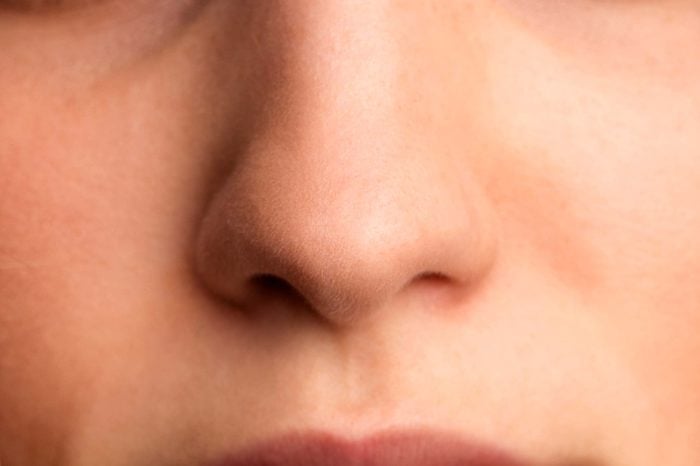
It’s a nasal polyp
These grayish sac-like growths on the lining of the sinuses, which can lead to sneezing, stuffiness, a runny nose, and a diminished sense of taste or smell, are very similar in their symptoms to seasonal allergies, explains Joseph Han, MD, Medical Director of the Division of Allergy at Eastern Virginia Medical School. Allergies can make you more prone to them. Your doctor will likely diagnose polyps with a physical exam and recommend medications like nasal steroids or a neti pot that can reduce sneezing and allow you to breathe easy again. Follow these safety tips before you use a neti pot.
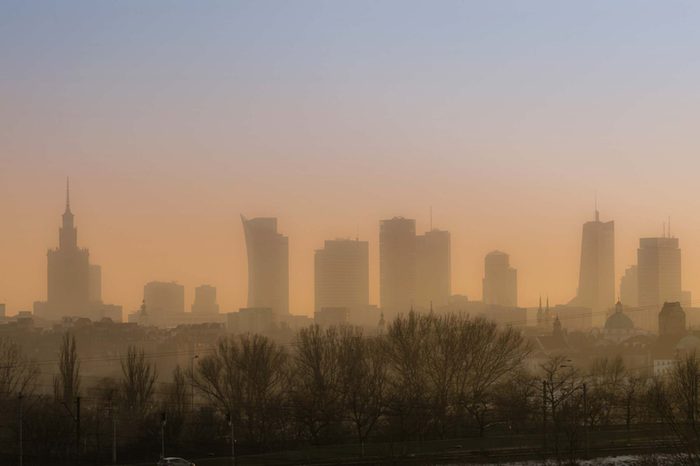
It’s the smog
Outdoor pollution can cause sneezing because pollutants’ tiny particles can easily be sucked up into your nasal cavity, says Dr. Wolbert. And, just like in allergies, your nose wants these things out—stat!—hence, the achoo. Unfortunately, air pollution can make allergens more potent, and worsen your symptoms or provoke new allergies, points out preliminary research in 2015, presented at an American Chemical Society meeting. There’s not much you can do to change the outdoors, but you need help in how to stop chronic sneezing. If this sounds like you, see a board-certified allergist who can help you put together an action plan. (That might include buying an air purifier for smoke to keep your indoor air quality high.)
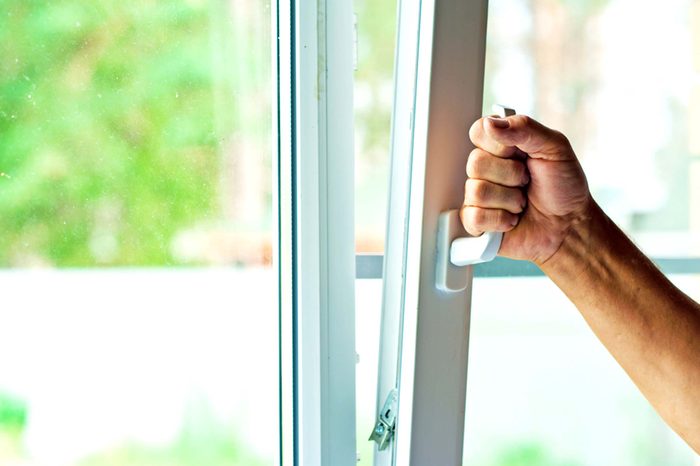
Your house is stuffy
If there’s no good airflow in your home, it’s difficult to effectively get rid of indoor air pollutants, which can also bring on a sneeze fest. (Think cigarette smoke, a fireplace, or mold.) Levels of indoor air pollutants can be 100 times higher than outside, according to the U.S. Centers for Disease Control and Prevention. (They also point out that we spend 90 percent of our time inside, which makes it a bigger deal.) Uncovering and fixing underlying issues (like mold) is one important step in improving the air quality in your home. So, too, is proper ventilation. The Environmental Prevention Agency suggests opening windows and doors, using window or attic fans, and turning on kitchen and bath exhausts to get fresh air flowing through. Here’s how to allergy-proof your home.
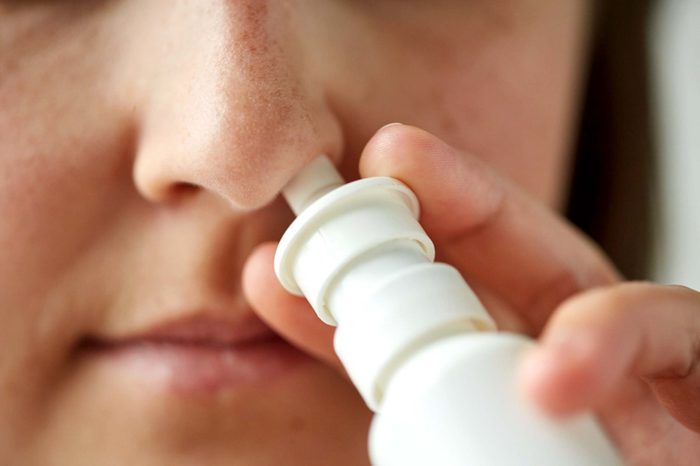
You’re using a nasal corticosteroid
Oddly enough, the same med used to treat allergies also comes with an ironic side effect: sneezing. These reduce swelling and dry up nasal passages, explains Dr. Han. If the culprit of your sneezing is this med, you may also find that the inside of your nose stings or your throat is irritated when you use it. Bring these issues up with your doctor.

You just looked at the sun
We would say believe it or not—but it may be something you’ve experienced: Bright lights trigger the sneeze reflex. A 2017 German study points out that 57 percent of the country’s population will sneeze when looking at the sun or bright lights, which can be a danger if you are, say, also driving a car. (They call this, appropriately enough, the ACHOO syndrome: “Autosomal Cholinergic Helio-Ophthalmologic Outburst.”) And guess what? Sun-sneezing runs in families. Because the sun’s rays can damage eyes, you should avoid sun gazing anyway.
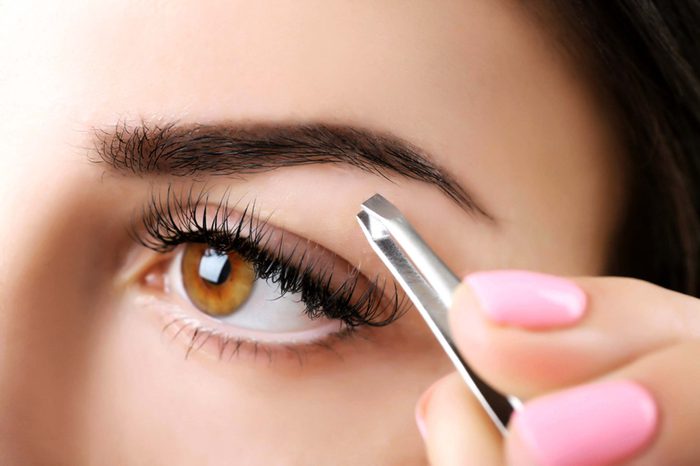
You’re plucking your eyebrows
There are a couple of things standing in your way of a gorgeous arch. Pain, yep. But sneezing? Things like plucking eyebrows or pulling hair stimulate the trigeminal nerve (which supplies sensations to the face), which will set off that sneezing reflex, according to experts at Penn State. Here are more weird facts about sneezing.

